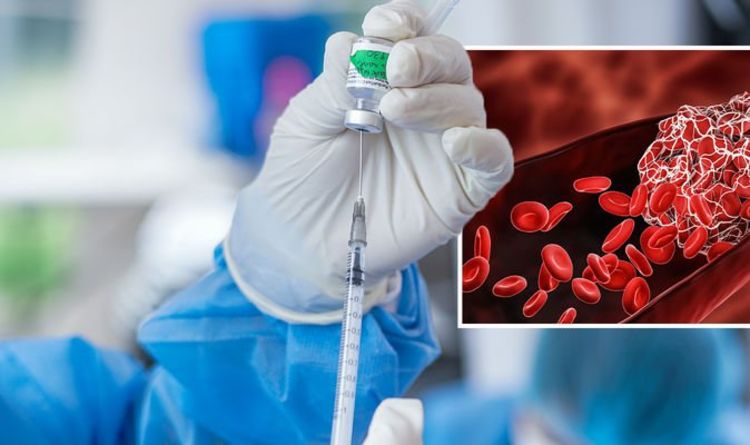
A smattering of reports from the UK and elsewhere have found AstraZeneca’s coronavirus vaccine triggers an unusual blood clotting disorder. It must be emphasised that the complication is an extremely rare occurrence – around eight people develop this condition for every million doses of the AstraZeneca vaccine given. This is seen slightly more often in younger people and symptoms tend to occur between four days and four weeks following vaccination.
In light of the slightly higher risk to younger people, the Joint Committee on Vaccination and Immunisation (JCVI) has issued new advice.
The expert committee has weighed the balance of benefits and risks and advises that the benefits of vaccination with the AstraZeneca vaccine far outweigh the risk of this extremely rare condition for individuals 30 years of age and over and those who have underlying health conditions which put them at higher risk of severe COVID-19 disease.
JCVI currently advises that it is preferable for adults aged under 30 years without underlying health conditions that put them at higher risk of severe COVID-19 to be offered an “alternative” to the AstraZeneca vaccine, if available.
According to the advisory body, the benefit/risk balance is more finely balanced in the youngest adults aged 18 to 29 years compared to older adults because the benefits from vaccination increase steeply with age.
READ MORE: Rhinoviruses are soaring in England due to easing of coronavirus restrictions – professor
The advice to offer an alternative vaccine in this youngest adult age group is based on a careful assessment of the benefit/risk balance and has been made out of an “abundance” of caution and because an alternative vaccine is available for this age group.
The JCVI will continue to review data as they become available and will update advice where appropriate.
What is causing the blood clots?
Sabine Eichinger, a haematologist at the Medical University of Vienna, was among the first to notice the clotting disorder, a strange combination of blood clots.
The blood clot disorder closely resembles a phenomenon seen in a few people who are treated with the anticoagulant drug heparin.
DON’T MISS
Fatty liver disease: The warning sign in your pee [INSIGHT]
Type 2 diabetes: The consistency of your stools [TIPS]
People admitted to hosptial after getting Covid vaccine [INSIGHT]
Heparin is normally used to prevent clotting, but in very rare cases can trigger a syndrome called heparin-induced thrombocytopenia (HIT), which causes blood clots and low platelet levels.
The risk to younger people
As an article published in the journal Nature reports, The European Medical Agency (EMA) is asking AstraZeneca to conduct a number of investigations, including laboratory studies to determine the effect of the vaccine on blood clotting, and evaluations of data from clinical trials, to try to glean any further information about risk factors.
Although there are reports that the syndrome is seen more often in women than in men, particularly in women aged under 60, the EMA was unable to conclude that women are at higher risk.
Many countries prioritised health-care workers to receive the inoculations, and women comprise a larger segment of this workforce.
If you are not eligible yet, wait to be contacted.
The NHS will let you know when it’s your turn to have the COVID-19 vaccine.
It’s important not to contact the NHS for a vaccination before then.
The vaccine will be offered more widely as soon as possible.
Published at Tue, 04 May 2021 07:01:00 +0000
AstraZeneca vaccine: Are you at risk of blood clots? JCVI issues new advice













